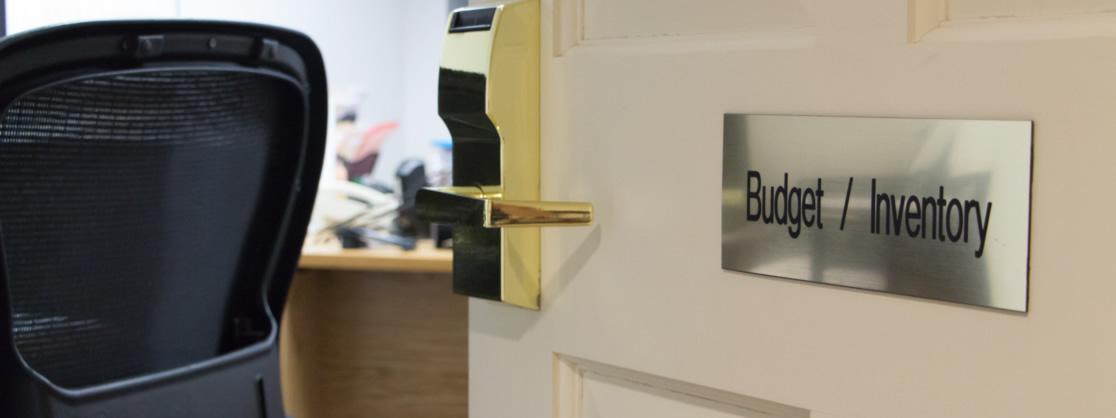Departments with a Control Budget
A Controlled Budget means that a budget is developed for that department and they will not be able to spend more than the amount allotted, without override approvals from the Budget Office. To keep up with how much a department has spent during the year, department personnel will be able to inquire online in the PeopleSoft Financial System, view the status of their budgets, and review transactions that have been processed against the budget.
All state-support departments will have a controlled budget in the PeopleSoft Financial System due to the fact that they are dependent upon State general funds and tuition and mandatory fee revenue – and are provided a budget allotted to spend during a specific period that does not accumulate unspent funds year to year.
Some Auxiliary Departments are provided a budget and given funding for hosting special events or having food related expenditures, which are not allowed to charge in a typical state-support budget code.
All of the departments that fall under the mandatory fees revenue category are required to submit and have a controlled budget created as well. These departments are not able to spend all of the proceeds that come in for that area. These include: Athletics, Student Recreation, Housing, Dining Services, Student Activities, Facilities and Student Union.
Other larger operating self-support operations are also required to spend within the means of a controlled budget such as the University Bookstore and Conference Planning.
Departments without a Control Budget
Most auxiliary (also referred to as self-support) departments should analyze their program and have a “plan” in place for spending during the year. Decisions for spending in these departments are not based on a budget; instead they are based on analyzing the beginning cash balance plus/minus revenues and expenditures made throughout the fiscal year.
These department codes (38xxxx and 17xxxx), act similar to that of a business checking account, whereby funds that are unspent at the end of the fiscal year continue to roll going forward each year. Departments should monitor and budget internally for these funds, however; a formal budget request does not need to be submitted to the Budget Office for these department codes.
At times, the proceeds generated from these revenue producing programs can be used to support the department it’s connected with. Keep in mind that the preference is to have “true baseline operating costs” in your primary state department code whenever possible. These additional auxiliary funds should be used to support the department with additional equipment and possibly extra travel expenses that may occur. All in all, every department code and its expenditures should be considered in the big picture for your school or division.
